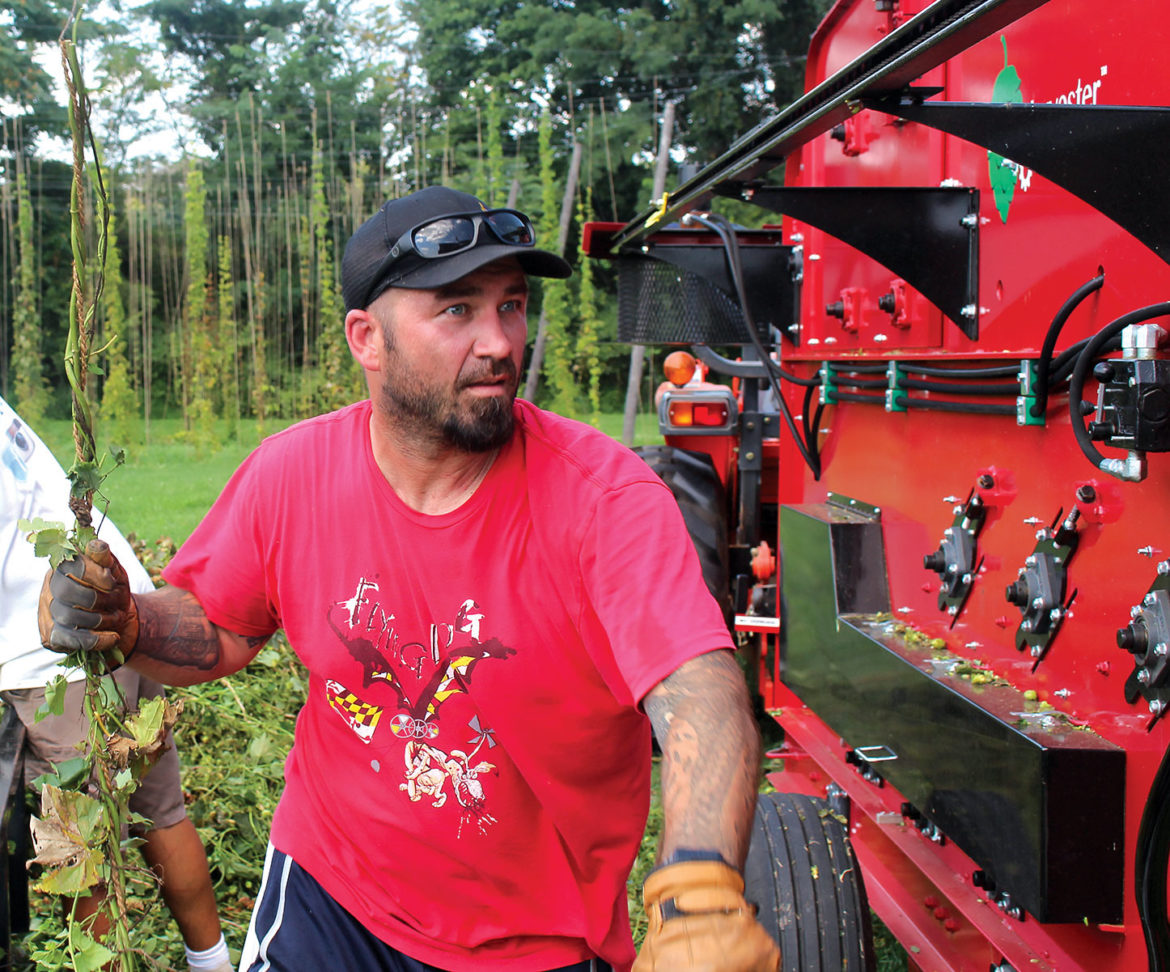Flying Dog Brewery and the University of Maryland Extension have teamed up to complete a multi-year study of the economics and feasibility of bringing hop production back to the East Coast, after it fled west nearly a century ago during Prohibition.
What’s driving this? “Local … and to ensure that it’s being done right,” said Flying Dog Brewmaster Ben Clark.
Flying Dog uses more than 200,000 pounds of hops a year in its beer, but found that few East Coast growers know how to produce hops at the volume and with the consistency that brewers need to make their products. So the brewery brought in the University of Maryland Extension to fill in those knowledge gaps.
Agriculture agent Bryan Butler is overseeing the hops experiment at the Western Maryland Research and Education Center in Keedysville, and he was instrumental in the writing of the first Maryland Hop Growers Guide, released in April.
As of May, there were 24 varieties of hops planted at the research site, including 12 breeds that were selected by academic and industry leaders in 2016 and another 12 that were believed to have regional potential in 2017.
The first year of the experiment revealed a wide range of yield and quality results, with one variety coming within striking range of the experiment’s 1,000-pound-per-area goal.
Canadian Red Vine looked to be the variety of choice for Maryland’s climate in the field. The variety had the best yield but also one of the worst aromas, which the evaluation group described as smelling like “old grass” and “freezer-burnt berries.”
However, the first year of the study yielded some promising hops varieties of interest to Flying Dog.
Southern Cross, which was planted in 2016, gave off the aroma of Hawaiian Punch, which fits within the profile of other popular citrus beers right now.
It’s not a traditional citrus smell, and that could lead to some really interesting beers. Southern Cross was extrapolated to have produced only 182 pounds of hops an acre, which is well below the extension’s 1,000-pound goal.
Low yields are a concern because they will drive up the sale price of the hops, and economics will determine if the East Coast can compete with West Coast hops.
“The question is going to be: Does it economically make sense?” Butler said.
Bringing Hops Back to Maryland
previous post

